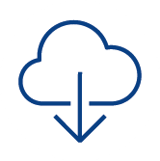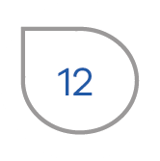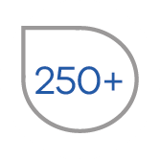Why is this important?
The Victorian Government is striving to improve how we manage, share and use the broad types of data we collect to drive business value and significantly improve the services we deliver to citizens. Improved information sharing across government and with the community create opportunities to collaborate and tackle complex issues through meaningful co-design of tailored solutions and services.
The Victorian Government recognises data as an asset and promotes an Open Data philosophy. Open Data has numerous benefits including greater efficiency and quality in the delivery of public services and improved transparency and accountability. Open Data breaks down traditional information silos, enables more timely access to greater, richer and more consistent data, and creates opportunities to collaborate. Improved accessibility to quality data results in better informed decision making and the design of services and solutions that are tailored to the specific need.
With improved sharing and access to information, there is a greater need to appropriately store and protect data in a way that maintains accessibility and usability. Appropriate management of data includes adopting a holistic approach that streamlines processes for storing, updating and using data. Streamlined processes result in greater accuracy and consistency in accessing and distributing information.
The information and data reform priority supports our second priority area, digital opportunity, by ensuring that citizens are presented with more accurate and complete information when engaging with the government, improving their interaction and promoting further engagement.
Key focus for 2019-20
The first three years of this strategy have laid the foundations for the appropriate management and access to information through the implementation of digital infrastructure, and the development of frameworks and standards across the Victorian Government.
The focus of 2018-19 explored and delivered on innovative information sharing reforms including the launch of the centralised whole of Victorian Government Application Programming Interface Gateway and developer portal, allowing application developers to connect with government data and making these platforms available as a shared service for government departments and agencies.
This year we will continue to focus on changing the ways in which government employees work to ensure that the collection, management and use of information and data is appropriate and ethical. The design of new systems, standards and processes will consider how regulatory compliance and governance can be incorporated into design, as well as streamlined to alleviate the burden on employees, to ensure that ways of using data are consistent, clear and well communicated.
Case study: Victorian Centre for Data Insights service model
The Victorian Centre for Data Insights (VCDI) was established to improve how the government manages, shares and uses the data it collects to improve the services we deliver to Victorians. VCDI drives the Data Reform Strategy for the Victorian Public Service (Strategy). The Strategy sets the direction for a Victorian public service to make better decisions underpinned by data. It acknowledges the ways that data and analytics can be used to improve policy, accurately model future programs and save significant time and money.
To ensure the strategic vision translates into meaningful impact, VCDI offers a full suite of services to help government departments and agencies make better use of data.
Bringing together and analysing data helps to identify meaningful trends and patterns that can be used to inform the delivery of better policies and services for the benefit of all Victorians. Embedding data insights into an organisation is as much about change management as it is about maths and algorithms. That is why – to complement its analytics services – VCDI also supports departments to overcome technical process and cultural barriers.
For example, VCDI is working with several departments and agencies to implement their respective organisational data strategies. This involves defining business challenges that data and analytics can help address and designing and implementing a roadmap to address the issues.
VCDI’s business transformation and capability specialists work within departments to help them become more data-driven. This could mean overcoming specific process and technology challenges, coaching teams in new ways of working, or developing tailored learning and development programs.
VCDI also leads the development of integrated Data Hubs, which will unlock the potential of cross-departmental data insights. The Hubs will enable government to be more attuned and responsive to citizens’ needs – especially when it comes to the most vulnerable Victorians.
VCDI is keen to learn even more about the challenges that government employees face as government plans for the next iteration of the Strategy through 2019.
To find out how VCDI can assist you, or to share your thoughts on the future of Victoria’s data agenda, please contact data.insights@dpc.vic.gov.au
Case study: Whole of Victorian Government Application Programming Interface Capability
The Victorian Government is creating an environment that supports information and data sharing in a secure and fast way, improving the accessibility and quality of data used to inform decisions, boost productivity and deliver services.
Application Programming Interfaces (APIs) are a critical component of delivering the digital technologies that Victorians use every day. The Victorian Government now provides leading API capabilities and infrastructure that lay the foundations for an ‘API first’ approach to data sharing across the Victorian Public Service.
A dedicated API team provide Victorian Government agencies with a suite of API related support services, from technical advice through to full API development, hosting and support in a 24/7 managed environment. The API Gateway technology supports agencies to securely share, re-use and enhance data in real-time, and allows API publishers to make their APIs discoverable to consumers both within and external to government.
A key component of the API capability is Victoria’s public facing developer portal – available at developer.vic.gov.au. This website allows developers from government, trusted partners and the public to access secure spaces to:
- view and try out an expanding catalogue of APIs
- request access to specific APIs
- integrate the APIs into applications
To support the ‘API first’ approach, Victoria has released API design standards in collaboration with government Chief Information Officers, technical experts and the Victorian developer community. The standards are a living resource that provide developers with recommendations on how to create high quality, consistent and highly reusable APIs.
By adopting an ‘API first’ approach, the Victorian Government has set a positive example of how APIs help to share data, unlock data held in legacy systems, increase reach, save time and money and empower citizens and external developers to create new and exciting government applications and enhanced government services.
2016-2020 IT Strategy journey

Developed an Information Management Framework
2016-17
Introduced legislation to reform the FOI Act 1982
2016-17
Established a data agency to better use and share data (VCDI)
2016-17

Identified 12 master data sets and designed cross-sharing
2016-17
Established Data Analytics Technology Platform for VCDI
2017-18
Developed and implemented standards for information management and data exchange
2017-18

Developed API platform into a shared service available for use by all 8 departments and VicPol
2017-18
Embedded a ‘data discovery’ capability for VPS personnel
2018-19
Implemented next steps of the Information Sharing and Release Strategy & Data Exchange Framework
2018-19

Launched a WOVG developer portal – over 250 registered developers
2019-20

21 delivered action items
2019-20
Develop Compliance by Design guidelines
2019-20
Develop a consistent model to enshrine ethical data science for Vic Gov
2019-20

Actions to be delivered
Updated